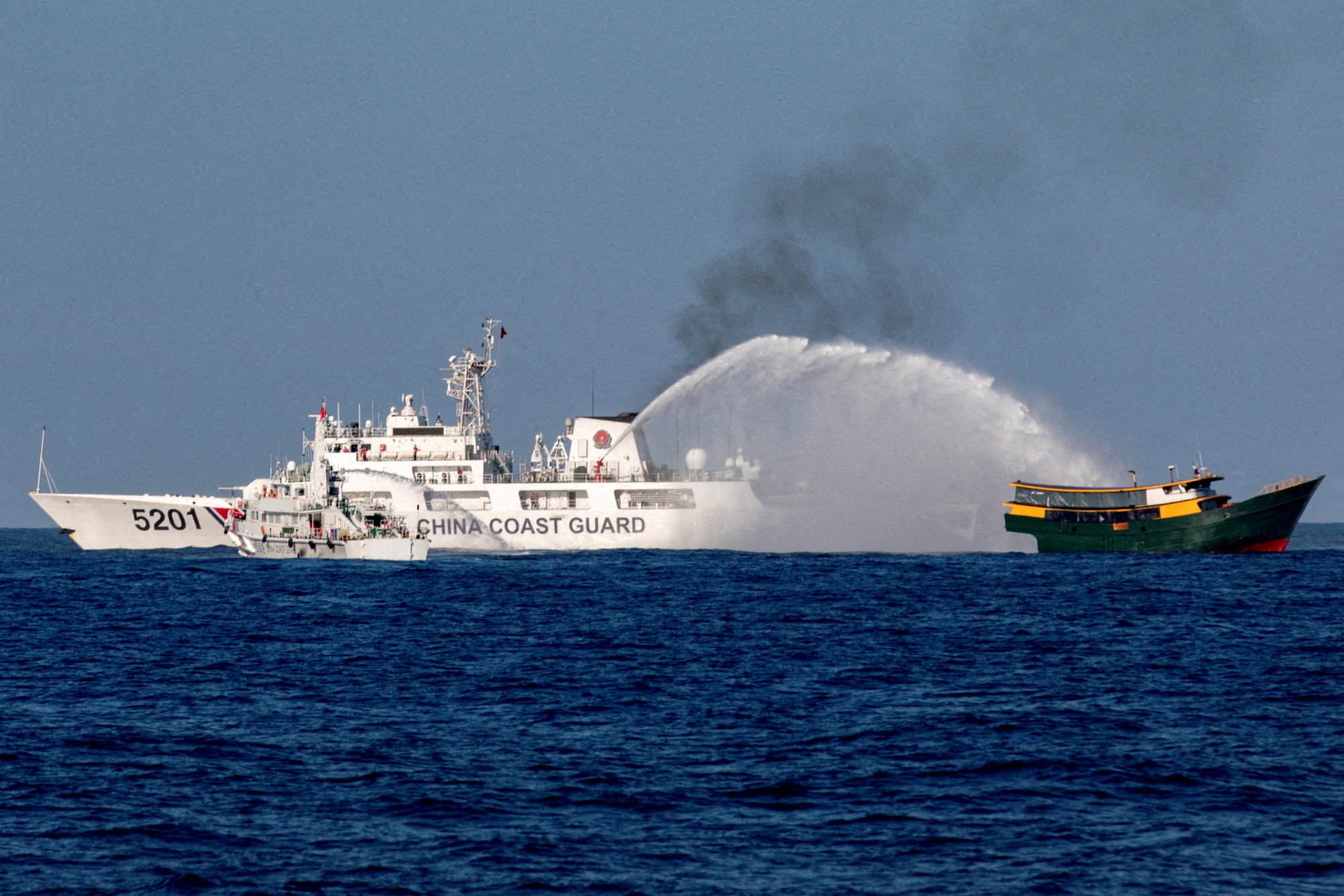The Japanese government anticipates further escalatory moves by the Chinese coastguard in the disputed waters in the East China Sea after Beijing began enforcing a new law allowing for the detention of anyone entering what it considers to be its maritime territory, a situation analysts warn could create new “flashpoints” for conflict between the two countries.
Beijing claims sovereignty over the Diaoyu Islands in the East China Sea, but that is disputed by Tokyo, which refers to the territory as the Senkaku archipelago and presently exercises administrative control over the uninhabited islands.
Under the revised Chinese law, which went into effect on Saturday, coastguard officials are permitted to detain for investigation anyone who has intruded into China’s territorial waters for up to 30 days. That period can be extended for an additional 30 days if the investigation is considered to be complex.
Tokyo has been watching developments around disputed islands and atolls in the South China Sea, a number of which have been claimed by Beijing and occupied by Chinese troops. At present, the Second Thomas Shoal has become the focus of tensions in the region, with China and the Philippines reiterating their claims to the territory and Chinese vessels using water cannons against Philippine vessels.

The concern in Japan, analysts say, is that a similar scenario could play out around the Diaoyu Islands.
“In late November last year, Chinese President Xi Jinping visited the headquarters of the coastguard in Shanghai, which has responsibility for the East China Sea,” said Masayuki Masuda, head of the China Division at the National Institute for Defence Studies in Tokyo.
“Xi clearly ordered the unit to strengthen ‘law enforcement operations’ under the new law that was coming,” he said.
The coastguard responded by drawing up the details of a programme for the inspection of foreign fishing boats that were detected operating in Chinese waters. As Beijing claims waters around the Diaoyu archipelago, that permits Chinese coastguard vessels to intercept Japanese vessels operating in waters that Japan also claims.
“This means that a new legal framework has been established that allows the Chinese coastguard to conduct law enforcement operations in Japanese waters around the Senkakus,” Masuda told This Week in Asia.
There have been reports in Japanese media over the last couple of years of Chinese patrol vessels chasing and attempting to halt Japanese fishing boats off the disputed islands and Masuda said it was “highly possible” that, operating under the new law, the Chinese coastguard would attempt to do the same again very soon.
“Japan refuses to recognise China’s claim to the islands and the ‘law enforcement’ actions that it is carrying out,” he said. “But it will be quite difficult to stop the Chinese operations, so Japan needs to strengthen its own activities in the region and not allow China to push us around.”
Masuda declined to speculate on the retaliatory action that Tokyo might take if a Japanese boat and its crew were seized and detained for up to 60 days under the new law, although he conceded that it would have a “serious impact on overall diplomatic ties”.
Ryo Hinata-Yamaguchi, a project assistant professor of international relations at the University of Tokyo, also expected China to start to “throw its weight around more than ever”.
“They have spent the last few years building up their coastguard to the point that it has become effectively a second Chinese navy,” he said.
“The Chinese coastguard is well armed as well as qualitatively larger than the Japanese coastguard, which could be overwhelmed as it tries to guard Japanese territory.
“An alternative flashpoint scenario to the seizure of a Japanese fishing boat operating within Japanese waters could involve the deployment of dozens of Chinese militia fishing vessels close to the islands,” Hinata-Yamaguchi said.
Japan would be duty bound to try to attempt to halt the illegal fishing operations and to usher them outside Japan’s waters, although that would almost certainly result in the Chinese coastguard intervening in the situation.
“The new Chinese law is one part of the problem, of course, but it also compels enforcement and that will lead to extra flashpoints,” he said.
Hinata-Yamaguchi was also not optimistic that Beijing would be willing to engage with Tokyo to move back from a confrontation on the issue if it perceived it had the upper hand.
“There would be lots of diplomatic messages and discussions over this, but I am not optimistic that China would be flexible,” he added.


